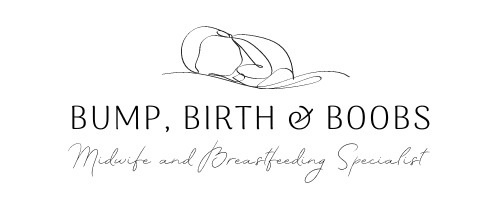Breastfeeding after breast surgery can be a complex topic, as the type of surgery and individual circumstances can significantly influence the effect on breastfeeding. Almost always we will have little idea how surgery is going to affect breastfeeding.
Antenatally I would seek to understand the type of surgery that has been undertaken, ideally with a surgical report. Additionally, I discuss a family’s goals for feeding their baby and make plans to try to achieve those goals. That may include antenatal hand expressing and education around optimal breastfeeding to maximise milk supply. Strategies can also include planning for renting a hospital grade pump or exploring alternative ways of feeding should breastfeeding not be going well, either in the short or longer term.
Here are some key points to consider:
Type of Surgery
Breast Augmentation
Women who have had breast implants may be able to exclusively breastfeed well. The type of incision and whether the milk ducts or nerves were affected can have an impact as well as the length of time since the surgery was done. Implants can cause pressure on the glandular tissue (the milk making part of the breast) and make it less effective. Generally, inframammary (under the breast) incisions have less impact on breastfeeding ability than periareolar (around the nipple) incisions.
Breast Reduction and Breast Lift (mastopexy)
This type of surgery can affect milk production and the ability to breastfeed, especially if a significant amount of breast tissue was removed. Whilst breast size is largely determined by fatty tissue within the breasts as the lobes of glandular tissue are interwoven with fatty tissue it is impossible to separate the two when a reduction is performed.
Sign up for free tips and advice

Get my video guide to
breastfeeding positions
Plus
just for signing up
Tell me when your baby is due or when they were born so that I can send you the most relevant tips
Lumpectomy and Mastectomy
Similar to breast reduction, women who have undergone lumpectomy may still be able to breastfeed well, but it depends on the extent of the surgery and how milk ducts and nerves were preserved.
Mastectomy usually results in a loss of the ability to breastfeed on the affected side. If only a single mastectomy was performed then a breastfeeding parent is usually able to provide milk well as a single breast is very able to produce a full milk supply for your baby, just as it would in the case of twins.
Milk Supply
If you have had breast surgery you may experience challenges with milk supply, whether due to changes in breast tissue or damage to the nerves that signal milk production. If your baby is yet to be born then I would suggest contacting your hospitals infant feeding team or a local breastfeeding specialist so they can best support you.
Specialists can provide valuable insights and help develop a breastfeeding plan tailored to your individual circumstances and goals. They can assist in addressing any challenges that arise when your baby is born and offer solutions that fit with your overall plan.
Support Groups
Some people find comfort and reassurance from others that have had similar experiences. You may find joining a support group for breastfeeding mothers, especially those who have had breast surgery, may provide encouragement and practical advice.
Timing
If you have not yet undergone surgery and are planning a pregnancy, discuss your breastfeeding goals and any concerns with your surgeon before surgery. In the case of elective surgery, it may be beneficial to wait until breastfeeding is completed before undergoing the surgery. It is disappointing that impact on breastfeeding is not always discussed with individuals before surgery is carried out.
In summary, while many women can and do successfully breastfeed after breast surgery, the ability to do so can vary greatly depending on individual circumstances and support received. It’s important to seek support and information tailored to your specific situation. Do not hesitate to Contact a specialist at the earliest possible time.



